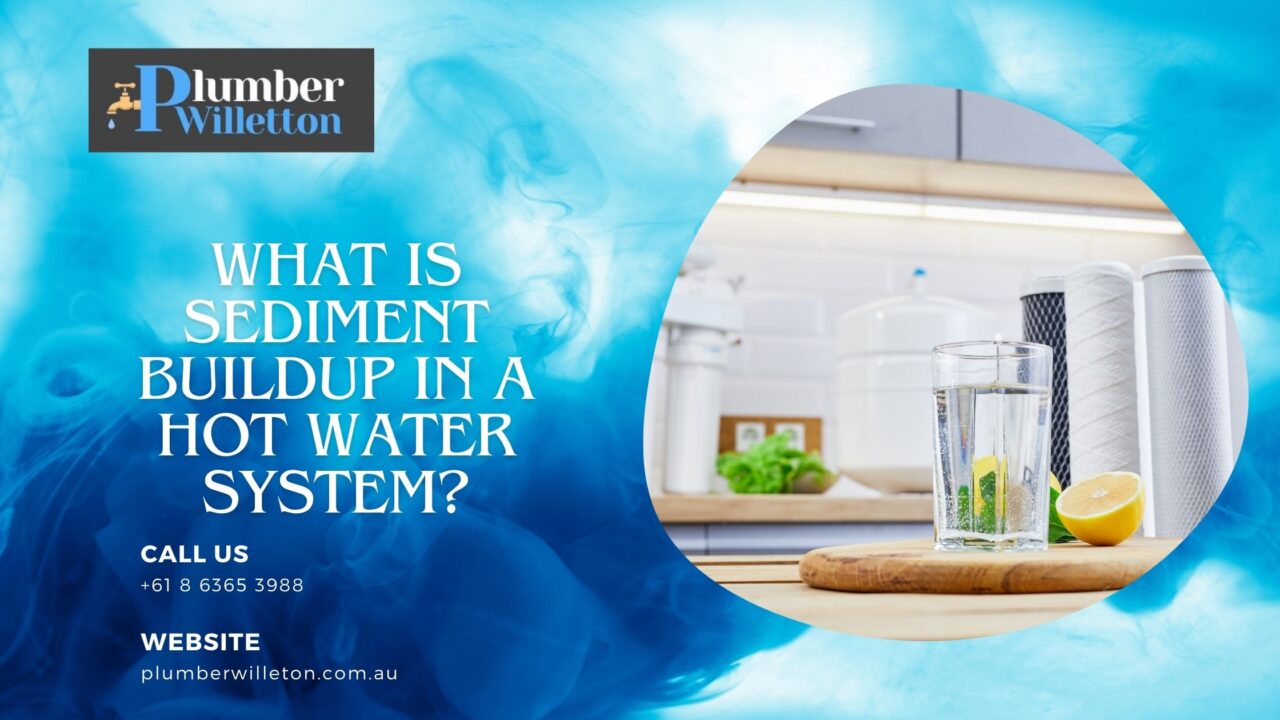Hot water systems are extremely essential in modern living. It provides all sorts of conveniences that we need in our everyday lives, like cleaning, bathing, cooking, and much more. However, sediment buildup is one of the biggest reasons for the issues with the hot water system. Whether you are looking for a plumber who can work with a hot water system in Willetton, Mount Pleasant, Brentwood, or Lynwood, it is important that you initially have knowledge about it before you choose experts. Remember that sediment accumulation is very common in hot water tanks, which can also have an effect on their efficiency and longevity. So, here, we will learn more about sediment buildup and how it can affect your hot water system.
What is sediment buildup?
Sediment buildup is the accumulation of minerals, which are mostly magnesium and calcium. These are naturally present in water. Over time, these minerals settle on the bottom of the water heater tank and create a sediment layer. The buildup often depends on the water’s hardness, with harder water leading to faster and more significant sediment accumulation. Homeowners in areas that have high mineral content will be noticing frequent issues that require professional maintenance for a hot water system in Brentwood, Willetton and Lynwood to address sediment buildup.
Ways that sediment buildup affects the hot water system
- Reduces heating efficiency – The sediment player at the bottom of the tank becomes an insulating barrier that prevents the heating element from effectively heating water. The efficiency means that the heater has to work even harder, and it will use more energy to heat the same amount of water. This will lead to increased energy consumption and utility bills.
- Increased energy cost – As the hot water system in Willetton will work harder due to sediment buildup, it consumes more power to heat water which results in higher energy bills. Sediment removal from professionals on a frequent basis keeps the energy cost in check and ensures that the hot water system in Lynwood, Mount Pleasant, and Willetton homes remain energy efficient.
- Tank damage and corrosion – Prolonged sediment buildup contributes to rust and corrosion within the tank. This is particularly true when the anode rod in the hot water system is not regularly maintained. Overtime, corrosion weakens the structural integrity of the tank, which leads to leakages or even system failure.
- Reduction in water capacity – The sediment buildup reduces the effective capacity of the water heater, which means that less hot water for daily use. The reduction can become inconvenient for households that heavily depend on hot water as they will experience inconsistent temperature or reduced hot water supply.
- Potential clogging of water lines – In extreme cases, sediment might begin to clog water lines along with the valves within the hot water system in Willetton, which leads to decreased pressure and water flow.
Steps to clean sediment from the hot water system
Regular maintenance is important to remove any sentiment buildup and extend the life of the hot water system in Mount Pleasant and Willetton. Here is a step-by-step guide to safely clean sediment from the water heater.
- Turn off the water supply and the power – To ensure safety, it is always important to turn off the power supply of your water heater. When it is about an electric heater, make sure that you are switching off the circuit breaker, and for a gas-powered water heater, you need to set it to pilot mode. After this, turn off the cold water inlet to stop any water from flowing into the tank.
- Allow the heater to cool down – Hot water inside the tank can result in burning the components. Therefore, it is important for the system to cool down for a few hours before you start the cleaning process.
- Connect a hose to drain valves – You need to attach a garden hose to the drain valve of the tank and place the other end with the safe drainage area, such as the outside or floor drain. Also, open the pressure relief valve present on top of the tank to prevent vacuum and allow smooth drain.
- Drain water tank – You need to open the drain valve and allow water to flow freely from the hose. Be sure and be cautious, as the water might still be warm. You need to drain until the water runs clear. If the tank has a huge sediment buildup, it will take a while for the sediment to get clear.
Choose professionals to maintain water heaters in Mount Pleasant, Willetton, Brentwood, and Lynwood
Sentiment buildup is a very common issue among hot water systems. This is especially true in the areas that have higher hard water. If you live in Willetton, Mount Pleasant, Brentwood, or Lynwood, you can consider choosing Plumber Willetton. With some of the certified experts and tools, they ensure maintenance of the hot water system by thorough inspection and maintain its longevity. With proper care, your hot water system in Willetton will continue to provide reliable, efficient hot water for years to come.

